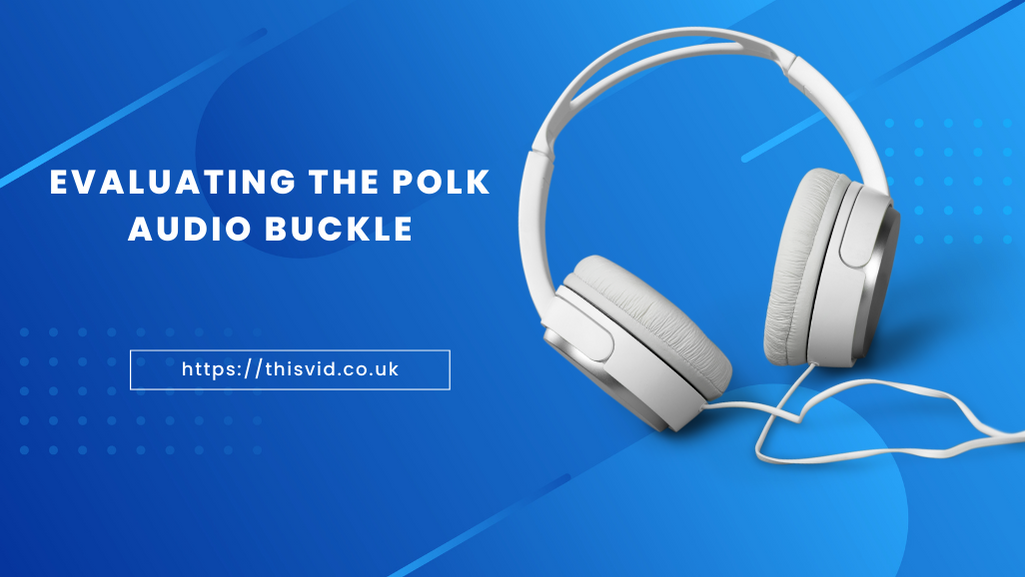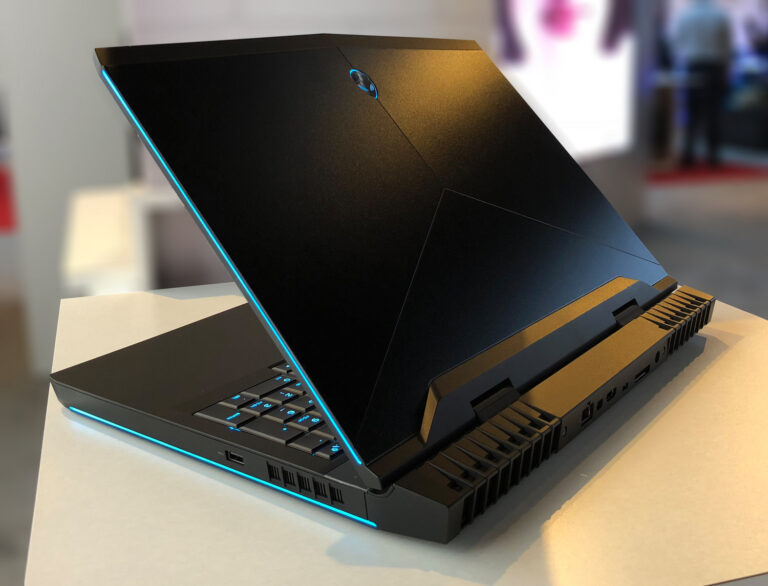Evaluating the Polk Audio Buckle
Polk Audio’s newest contribution to the over-ear headphone market, the Buckle, may sound like a pilgrim-themed return to the days of our forebears, but they’re actually another offering in the company’s Heritage Collection. Polk’s range of basic products exemplify his deliberate emphasis on country chic with a modern edge. The Buckle’s aesthetic seems to be consistent with their name, since the band uses a worn leather headband, muted colours, and chunky, matte-finished metal for their instruments.
Polk’s website features a framed photo of the Buckle next to a passport, a whisky flask, and a compass on a leather rope, conjuring images of a Tintin-esque steamship trip. However, the $200 headphones also have some cutting-edge conveniences, such as an advanced iOS control system and a microphone integrated into the body of the device. We recently went on our own expedition with the Buckle and found out how they performed in the real world of contemporary audio, outside the purely aesthetic realm.

Outside the norm
The Buckle’s packaging design is a strange hybrid of high-end and economy products. We found the headphones cuddled in a thin layer of biodegradable packing foam after opening the faux-wooden box (which was designed to be opened from the bottom). Once we started yanking on the phones, we found tiny plastic bindings that made dismantling them a bit of a chore.
The moment it was unlocked, we found a plethora of fluffy white leather lining the inside, emitting a fresh-headphones scent. The exterior of the headband was also covered in leather, however this time in a grainy brown hue. As our fingers reached the band’s end, we saw thick metal arms holding angled ear cups in the shape of turtle shells. We were a little shocked to learn that the Buckle’s ear cups don’t fold inward for more compact travel, as this is a feature of many of the new headphones we test.
A felt carrying case, detachable brown headphone wire, gold 1/4-inch adaptor, and a tiny pamphlet of instructions were also included in the box.
Features and design
While the Buckle come in a more typical black on silver colour scheme, our brown and white version offers a bit more personality, slightly recalling a pair of Doc Martins; whether or not that’s a good thing is a matter of preference; we like a more classic design. Overall, the build quality is satisfactory, particularly because to the substantial chunks of metal used in key areas; nevertheless, the outside plastic of the earcups detracts significantly from the otherwise high-end experience.
… we found a tonne of fluffy white leather lining the inside, giving off that fresh-headphones aroma.
The ear cups can be rotated through 360 degrees since they are attached to the metal arms of the headband by means of pivoting vertices. Heavy cushioning lines the interior of the Buckle’s cups, protecting the 40mm dynamic drivers from accidental contact. The advertised frequency range of the drivers is 10Hz to 21.5kHz, with a respectable 24 Ohm impedance level. Remember that minimum requirement as we move on to the performance description.
The dial and microphone for iOS devices that are incorporated into the Buckle are its defining feature. Embedded in the metal arm that carries the right earpiece, the mechanism works fairly well after you give up looking for it on the ear cup itself. You can adjust the volume in small increments by turning the dial up or down against a minor resistance, and you can play/pause music, answer calls, and switch tracks in the usual iOS method by clicking the dial. The precise microphone is located at the end of the arm, next to the 2.5mm jack for connecting headphones.
It’s a 48-inch cable with gold-plated jacks on either end, and the two ends are angled at 90 degrees from one another. The silver etching around the plugs adds a touch of class to the otherwise plain cable.

Comfort
The Buckle’s thick cushioning along the ear cups helps them stay up reasonably well over time. However, the clamping pressure was a bit too great for our comfort. During our longest listening sessions, we also wished there was a little more cushioning at the top.
Presentation of Sound
The Buckle’s sound design is as meticulously created as its visuals. The frequency response is very sculpted, with the treble sanded down to a smooth, dull finish and the bass and lower middle frequencies emphasised to give a dark, chocolatey hue. The Buckle deliver a lot of punch with little apparent distortion, but they also allow a lot of opportunity for instrumental detail, particularly in the distant reaches of the stereo channels.
The Buckle has a very stylized sound to match its very styled visual design.
It’s no surprise that the Buckle place a premium on bass in today’s Beats-dominated headphone industry. During our testing, these infants showed great authority when probing the depths. However, low-end frequencies were reproduced accurately, with a solid and unyielding response that gave hip-hop and electronic music some much-needed weight.
Despite the Buckle’s emphasis on the low end, we were pleasantly surprised to find that there were very few instances in which we felt that it was overemphasised. One of our favourite test tunes, “Reason’s Why” by Nickel Creek, has a powerful stand-up bass that can rapidly get out of hand on headphones with poor balance, but the Buckle handled it with deft distribution. Despite the phones’ heavily muted highs, they still managed to portray the song’s mandolin and acoustic guitar’s string clicks with a warm, golden sheen, as if an archaeologist had dug the attacks of the instruments out of the deeper strata of the sound.
When we came to the shimmering clips of hi-hats and snare, we found that they were often too laid back, which dampened the energy of the percussion and, by extension, the whole track. The smooth treatment worked wonderfully for scorching recordings like Van Halen’s “House of Pain.” However, under typical conditions, some instruments can get lost in the mix, especially when placed in the image’s centre, where a lot of the lower frequencies are focused.
Those drawbacks aside, we were consistently amazed with the Buckle’s rich and flexible colour palette, which enabled it to accurately recreate the reddish tones of electric guitars and the darker marrow of sawtooth synths. There’s a lot of quality to this sound for around $200.

Conclusion
The Buckle are a great addition to the category of mid-range over-ear headphones because they combine a laid-back look and feel with a high level of sound quality, including rich definition and lots of power. Our initial impression was that the $250 MSRP was a bit steep, but at the current internet price of $200, the Polk Audio Buckle are an attractive option in a crowded market. if you want to read more reviews about the gadgets you can visit thisvid.co.uk
Highs
- Strong, completely distortion-free audio
- Full and distinct in the middle
- Consistently pounding bass
- Integral iOS command interface
- Excellent worth
Lows
- Treble lacks presence/excitement.
- A little haziness in the middle of the image, it seems.







